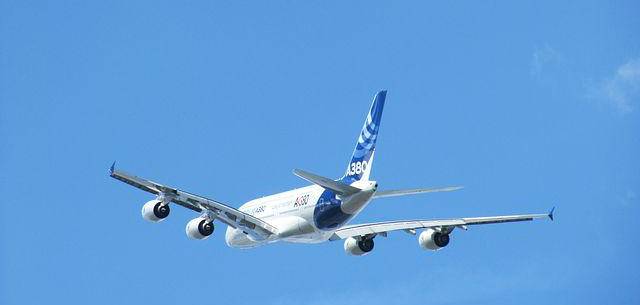
- An Airbus A380 recently flew for three hours with an engine powered entirely by Sustainable Aviation Fuel (SAF), made from used cooking oil and other greases.
- The shift from petroleum-based kerosene to sustainable fuels plays an important role in aviation's efforts to reduce CO2 emissions in the race to net zero emissions.
- But the supply and demand for FAS is still nascent and needs the support of the aviation industry and policy makers to achieve the scale needed to reduce emissions.
Used cooking oil probably isn't the first thing that comes to mind when you think about your next vacation flight. But that could soon change. Airbus has just completed its first test flight of an A380 jumbo jet with an engine powered entirely by Sustainable Aviation Fuel (SAF). The fuel used was a mixture of used cooking oil and other residual fats , purified to extract sulfur and other contaminants.
Decarbonizing a hard-to-reduce industry
The aviation industry is widely recognized as one of the hardest to decarbonize and its share of global emissions is around 2% .
The industry has already made significant investments in electric and hydrogen-powered aircraft . The shift to alternative propulsion and sustainable fuels plays another important role in its efforts to reduce CO2 emissions in the race to carbon neutrality by 2050. The first test flight with biofuel dates back to 2008. By the end of 2019, more than 200,000 commercial flights had used SAF , mostly mixed with kerosene.
Airbus has now added a new boost by flying the world's largest passenger plane for three hours using a mixture of kerosene and SAF. One of the outboard motors was powered entirely by SAF during the test. The A380 joins its smaller relatives, the Airbus A350 and A319neo, which underwent similar tests last year.
What is FAS?
Sustainable aviation fuel comes in a variety of forms, all of which have the ability to deliver performance comparable to kerosene, but with a fraction of the CO2 emissions .
SaF can be made from a wide variety of sources. These include maize cereals, algae, agricultural and forestry residues, solid waste and dedicated energy crops. Many SAFs contain fewer aromatic components than kerosene, allowing them to burn cleaner. This improves aircraft performance and also reduces emissions of pollutants other than CO2.
FAS could contribute between 53 % and 71% of the emission reductions required by the sector by 2050 , according to a 2021 report by the Air Transport Action Group (ATAG).
Accelerating the SAF market
As with so many sustainable and renewable energy sources, SAF still comes at a high cost: SAF currently costs about four times as much as conventional jet fuel. As a result, supplies are tight, with production currently estimated at less than 0.1% of global jet fuel consumption . Even the expected increase to around 3% of demand expected in 2030 will fall short of the targets set by lawmakers such as the European Union in its Green Deal, according to BloombergNEF. Increased demand would boost production and lower prices.
Another problem is that not all SAFs are created equal. Some production methods are more CO2-intensive than others , as highlighted in a working paper by the International Council for Clean Transportation (ICCT). The key will be to make the most of the methods that offer the greatest greenhouse gas savings, concludes the ICCT.
However, the importance of SAF as a major pathway towards the decarbonization of the aviation sector remains. This was underscored when 60 members of the World Economic Forum 's ÂCoalition here 2030 . The goal is to tackle what the signatories call the chicken-and-egg problem around SAF supply and demand, supported by both industry and policy initiatives. The coalition aims for 10% of the world's jet fuel to be made up of SAF by 2030.
Source
-
Andrea Willige Senior Writer, Educational Content
Posted on 2022-04-11 17:13








Comments